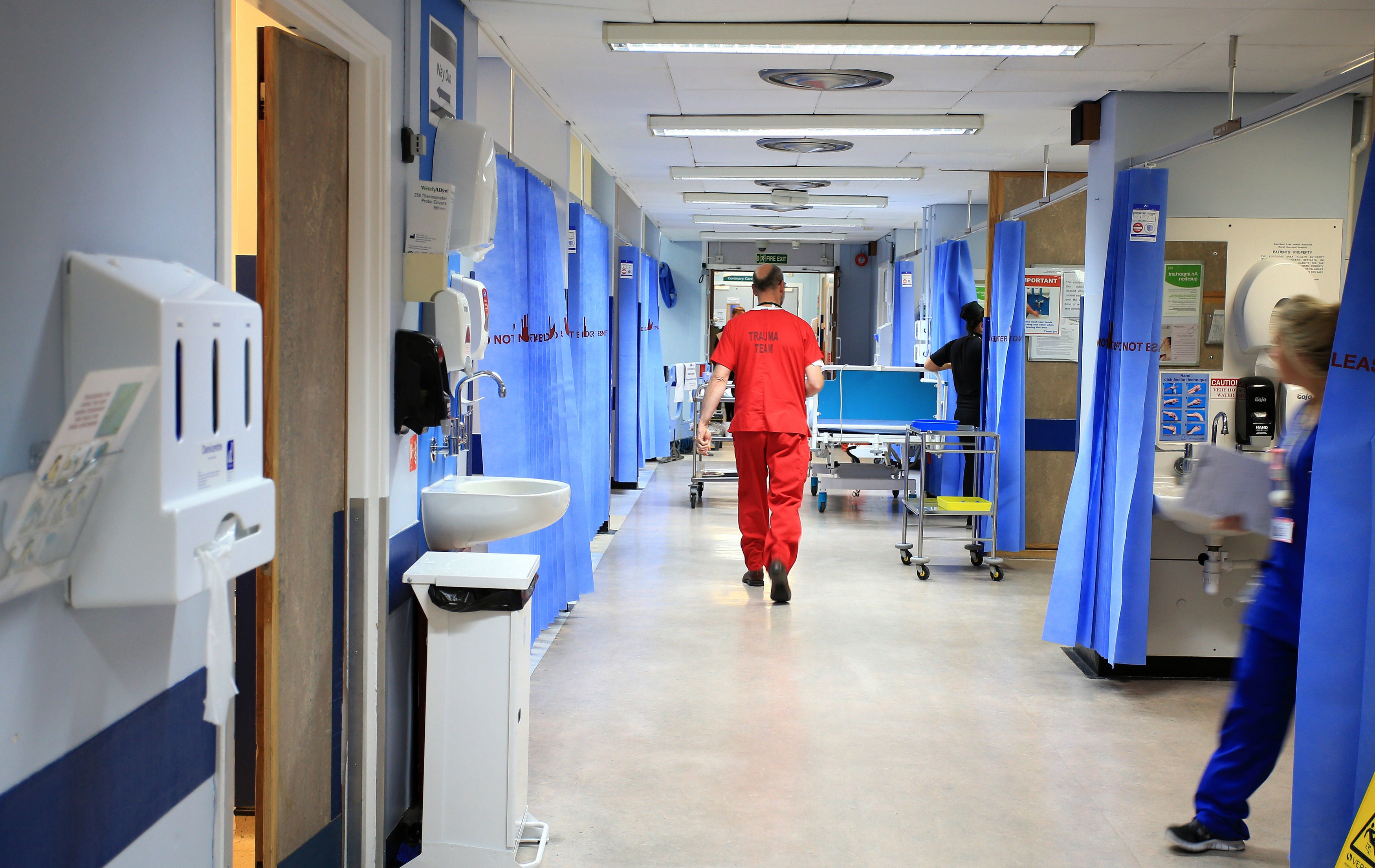Millions of volunteers sought for major study which aims to predict who will get ill in later life
Campaign aims to find ways to prevent and treat diseases such as dementia, cancer, diabetes, heart disease and stroke

Your support helps us to tell the story
From reproductive rights to climate change to Big Tech, The Independent is on the ground when the story is developing. Whether it's investigating the financials of Elon Musk's pro-Trump PAC or producing our latest documentary, 'The A Word', which shines a light on the American women fighting for reproductive rights, we know how important it is to parse out the facts from the messaging.
At such a critical moment in US history, we need reporters on the ground. Your donation allows us to keep sending journalists to speak to both sides of the story.
The Independent is trusted by Americans across the entire political spectrum. And unlike many other quality news outlets, we choose not to lock Americans out of our reporting and analysis with paywalls. We believe quality journalism should be available to everyone, paid for by those who can afford it.
Your support makes all the difference.Five million volunteers are to be drafted in as part of a major health research programme to predict who will contract a serious illness later in life, long before they display any symptoms.
The campaign, dubbed Our Future Health, has been set up as a means of testing and devising new ways to prevent, detect and treat diseases, including dementia, cancer, diabetes, heart disease and stroke.
According to the organisers, the health project is anticipated to be the largest of its kind in the UK.
The chief executive of the programme, Dr Andrew Roddam, has said participants will play a vital role in developing the healthcare system for later generations “to live healthier lives for longer in the future”.
He said: “Our Future Health started out because we know that people spend a lot of their later life in relatively poor health and, despite everything that we’ve seen in the advances in medicines around dementias, cancers, heart disease, strokes and other things, we still know people live that sort of latter part of it in quite an unhealthy state.”
According to recent estimates, 59 per cent of those aged 65 or older in the UK have two or more serious health conditions. By 2035, this is expected to rise to around 70 per cent.
“Our Future Health is a new research programme really designed to help researchers take advantage of some of the different ways of thinking about preventing, detecting and treating diseases,” Dr Roddam added.
“What we’re aiming to do over the next few years is to build a community of five million volunteers, people over the age of 18, who are willing to share information about themselves, provide blood samples, complete questionnaires and be given the option ultimately to get some feedback about their health by taking part in the research.
“We want to do this across the UK, recruiting every type of person that we can find, covering all of the ethnic backgrounds, social backgrounds, all of the regions and areas in the country.
“So that really what we get to is information and knowledge about people that will ultimately give us new insights into ways of finding disease earlier and intervening earlier on to give them those better, higher quality years of life later on in life.”
The researchers hope that by recruiting such a large volunteer reserve they will be able to accumulate a comprehensive understanding of early signs of illness and ways to intervene.
“So you don’t always wait until the late diagnosis – you’re getting in early, you’re able to sort of prevent that progression, or at least slow it down in individuals to allow them to live healthier lives for longer in the future,” said Dr Roddam.
As a result of the pandemic, he added, people are “much more appreciative of the value of kind of collaboration and being able to share information about themselves to advance how we develop treatments, vaccines, information”.
Professor Sir John Bell, chairman of Our Future Health, said: “Progress in tackling the growing burden of chronic disease depends on strong collaboration across the life sciences sector and health system.
“We’ve certainly seen how powerful it is during the Covid-19 pandemic, with the rapid development and deployment of vaccines, diagnostic tools and treatments into the NHS at unprecedented speed and scale.
“Our Future Health is designed to harness the power of collaboration. The combination of support from industry and charities that we’re announcing today, alongside our existing funding from the Government, means we’re on track to build Our Future Health into a world-leading health research programme.
“Hopefully it will lay the ground for a bold new approach to healthcare in the NHS, focused on early detection and prevention of disease.”
The project, funded by UK Research and Innovation (UKRI) in partnership with the NHS, has been endorsed by 16 major health charities. So far, it has raised £100 million of £160 million required.
The recruitment process will commence in the spring for volunteers over 18.
A spokeswoman for the project said data shared by participants will be “de-identified” and held in “trusted research environments”.
Dr Roddam said: “We recognise that this is one of the most precious things that we’re asking people to share about themselves – information about their health and what’s happening to them is really very personal information – and we treat that with the highest levels of protection and respect.”
Join our commenting forum
Join thought-provoking conversations, follow other Independent readers and see their replies
Comments